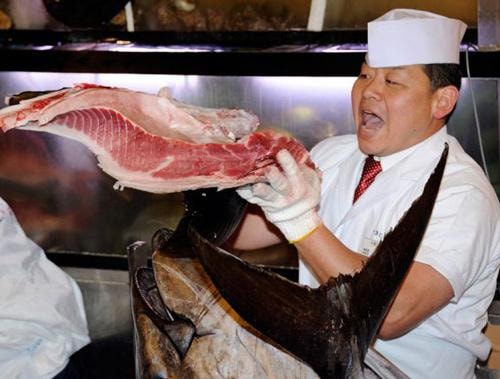Japan develops software to prevent food fraud
A group of researchers at Japan's Kyoto University has developed DNA barcode reading software that can prevent intentional mislabeling of agricultural and seafood products, according to the Asahi Shimbun newspaper today, October 22.
Using the above software, users can easily detect the species of organisms based on information about their DNA sequence.
 |
| New Japanese software can help distinguish between Pacific bluefin tuna and yellowfin tuna meat - Photo: AFP |
“The price difference between yellowfin tuna and Pacific bluefin tuna is significant,” said researcher Akifumi Tanabe, who played a key role in developing the new software. “However, if they are used as food, even experts have difficulty distinguishing them. If you use this software, you can easily detect mislabeling.”
The new software can also compare the DNA sequences of fish and other organisms with sequences of the same species already stored in DNA databases. By comparing the DNA barcodes, the software can automatically determine which species an organism belongs to.
Even in the case of a new species, the software can determine what family it belongs to and how it relates to existing species.
DNA databases have been compiled in Japan, the United States and Europe, containing the DNA sequences of about 288,000 species of organisms.
To this day, the work of identifying which species an organism belongs to is largely dependent on the knowledge of experts. Therefore, the assessment is sometimes inaccurate and the results often vary, depending on each expert.
According to TNO - HQ






